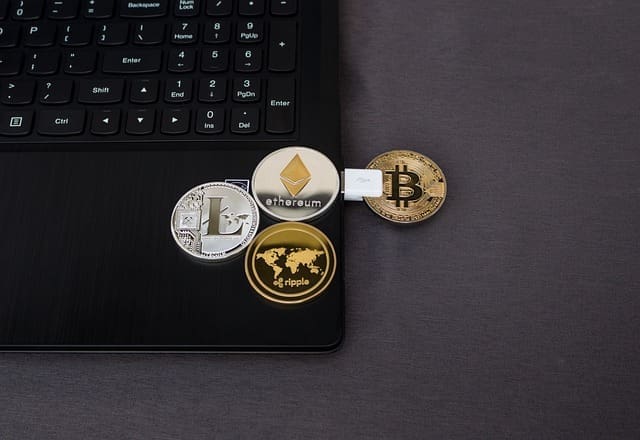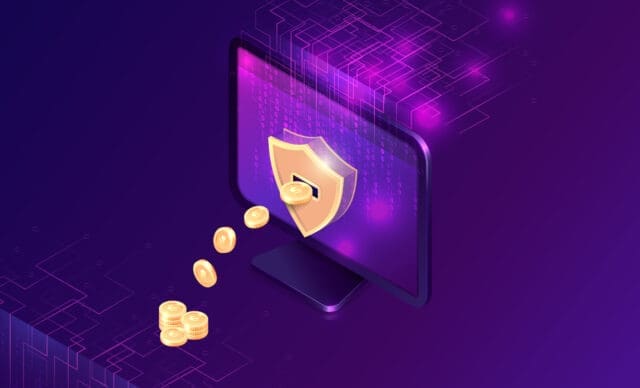The rise of cryptocurrency has revolutionized the way we invest and transact. However, while the many advantages of this form of money make it extremely enticing, it also brings along certain critical security concerns. Securing your cryptocurrency is crucial to ensure the safety of your assets and prevent unauthorized access or theft. In this blog, we will explore some tips and best practices to keep your cryptocurrency safe and secure.
Understanding the Risks
Before delving into security measures, it’s important to understand the risks associated with cryptocurrency. Due to its digital nature, cryptocurrencies are vulnerable to hacking attempts and fraudulent activities. Additionally, the pseudonymous nature of transactions can attract criminals who seek to exploit weaknesses in the system. Kiana Danial’s courses can help you address these risks effectively. It is vital to take an informed approach and implement security measures that protect your digital assets.
Creating Strong Passwords Using Two-Factor Authentication
The first line of defense in safeguarding your cryptocurrency involves creating strong passwords and utilizing two-factor authentication (2FA). Avoid using common passwords or personal information when setting up account credentials. Instead, opt for passwords that combine uppercase and lowercase letters, numbers, and symbols for security. In addition, activating 2FA provides a layer of protection by requiring a code or confirmation through your mobile device or email.
Securing Your Wallet
A cryptocurrency wallet is a tool that allows you to store, send, and receive your currency. It’s important to select a wallet that offers strong security features. Look for wallets that utilize robust encryption algorithms to safeguard your keys, which are crucial for accessing and managing your cryptocurrency. Recommended options include hardware wallets like Trezor and Ledger, as they store your private keys offline, reducing vulnerability to threats.

Regularly Updating Your Software
It is crucial to keep your cryptocurrency software up to date in order to prevent security vulnerabilities. Wallets and trading platforms frequently release software updates that include patches for identified security flaws. Neglecting these updates may expose your cryptocurrency to exploits. Develop the habit of checking for updates regularly and promptly installing them. Additionally, ensure that you download the software from official sources in order to avoid compromised versions.
Staying Alert for Phishing Attacks
Courses by Kiana Danial talk about how phishing attacks continue to be one of the most common methods used by cybercriminals aiming to steal cryptocurrency. These attacks involve creating websites or emails that imitate trusted platforms in order to deceive users into sharing their private keys or login credentials. To ensure your safety, it is always important to verify the URL of a website before entering any information. Be cautious of emails that claim to be from cryptocurrency exchanges or wallet providers, and avoid clicking on any links that look suspicious.
Using Multisig Wallets
Consider utilizing Multisig wallets for an extra layer of security. These wallets require signatures or approvals from multiple parties before executing a transaction. By implementing Multisig wallets, you can distribute the risk and make it significantly more challenging for hackers to gain unauthorized access to your funds.
Using Cold Storage
For long-term holdings of cryptocurrencies, it is highly advisable to employ cold storage solutions. Cold storage allows you to store your cryptocurrencies offline, away from the internet, thus minimizing the risk of hacking attempts. Hardware wallets are a good option for cold storage as they securely store your private keys offline and are designed with resistance against hacking in mind. Remember to keep your hardware wallets stored safely and create copies of your keys.
Being Careful When Using Wi-Fi
Using Wi-Fi networks can pose a significant threat to the security of your cryptocurrency. Public networks are often non-encrypted, making it easier for hackers to intercept your internet activity and gain access to your assets. It is advisable to avoid logging into your cryptocurrency accounts or conducting transactions while connected to Wi-Fi. Instead, consider using your mobile data or using a virtual private network (VPN) to encrypt your internet connection and add an extra layer of security.
Conclusion
As the popularity of cryptocurrency continues to increase, it becomes more crucial than ever to safeguard your digital well-being. Learning from Kiana Danial course programs, and by implementing passwords, enabling two-factor authentication, regularly updating software, being vigilant about phishing attacks, employing Multisig wallets, adopting cold storage for long-term holdings, and exercising caution with public Wi-Fi connections, you can significantly minimize the risk of unauthorized access and theft. Taking these measures will help ensure the safety and security of your cryptocurrency investments, providing you with peace of mind in this era.
Featured Image by upklyak on Freepik




